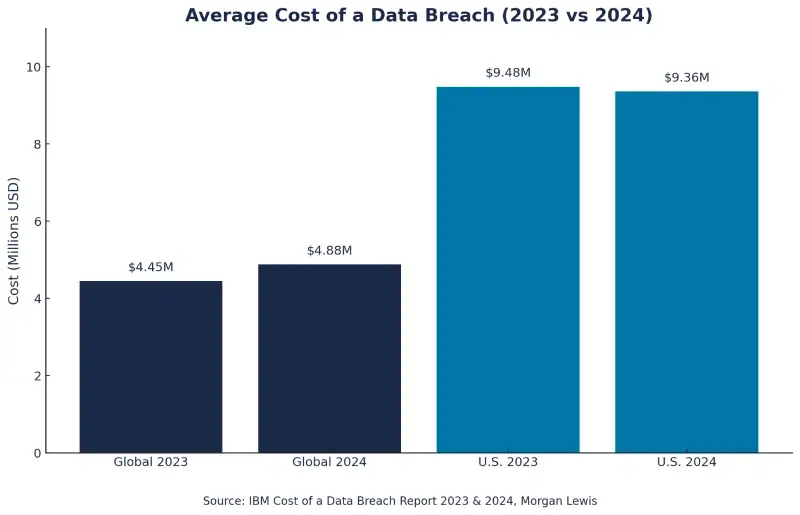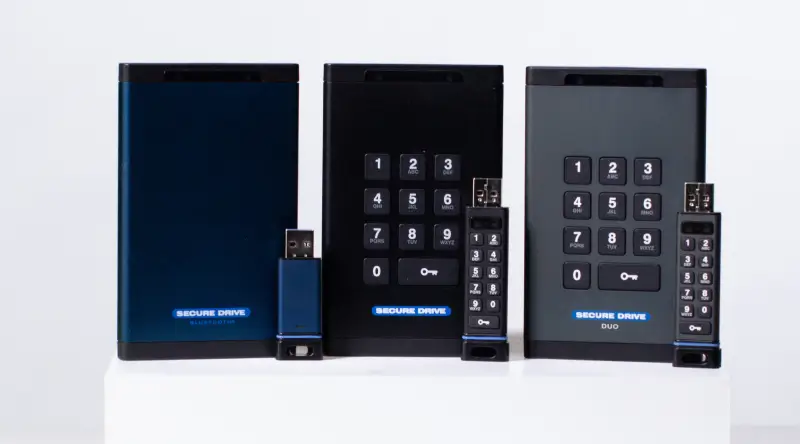Beyoncé's unreleased music was stolen from a parked car in Atlanta. This left her fans stunned, and industry professionals were reminded of just how vulnerable sensitive data can be, even at the highest level of production. This is disastrous news for the singer, who is well-known for her secrecy when it comes to upcoming songs. She has previously gone to great lengths to prevent her albums from being leaked in the past.
The artist's music, alongside other important data, was housed on several hard drives, all of which were taken from a car that was rented by Beyoncé's choreographer and one of her dancers. According to police reports, thieves smashed into the parked SUV and made off with multiple thumb drives, MacBooks, and tour materials. Some devices contained unreleased, watermarked music.
All it took was a brief visit to a street market, and just like that, Beyoncé's upcoming songs are now in jeopardy. There's no guarantee that those files won't be leaked, potentially ruining various secret plans for new albums or tours.
This is a stark reminder that no one is ever completely safe. Although Beyoncé's team likely took every safety precaution, theft can never be fully prevented, but data loss can be. If the files were housed on secure, hardware-encrypted drives like the SecureUSB and SecureDrive, no one would have to worry about potential leaks. The files would've been fully, completely safe even if the drives were stolen, giving some much-needed peace of mind in a highly stressful situation.
What Happened to Beyoncé's Unreleased Music?
The theft took place when Beyoncé and her touring crew were in Atlanta, getting ready for the singer's four-night stop in the city as part of her Cowboy Carter tour.
On the evening of July 8, 2025, someone broke into the Jeep Wagoner that Christopher Grant, Beyoncé's choreographer, and Diandre Blue, one of her dancers, rented out. Police reports indicate that the incident took place between 8:09 p.m. and 9:10 p.m. in a parking garage near Krog Street Market. The place is a popular area just a few miles from Mercedes-Benz Stadium, where Beyoncé was scheduled to perform a series of shows.
According to the police report and a subsequent viral 911 call, the pair returned to the car, only to find the rear window smashed and two suitcases stolen. Among the stolen items were five thumb drives reportedly containing unreleased, watermarked Beyoncé music, including tracks intended for future release. Also missing were two MacBook laptops, Apple AirPods Max, luxury designer sunglasses and clothes, performance outfits, and show materials, including setlists and staging plans. The victims reportedly told the police that they were carrying sensitive data for Beyoncé.
The police quickly launched an investigation. They were able to find two very light sets of fingerprints, but Apple's Find My service proved to be invaluable, too. It allowed the victims and law enforcement to track the locations of the MacBooks and the AirPods. This reportedly led investigators to a 2025 Hyundai Elantra.
It's unclear whether the unreleased music has been leaked or accessed, but this incident opens the door to a wider debate about data security and the importance of protecting your most valuable files in every way possible.
The Wider Impact of Data Theft and Data Loss
When we think of data loss, we often think of corrupted files or accidentally deleted family photos. However, data theft and data loss can affect anyone, from a single person to a massive organization. In this case, the person affected happens to be one of the most recognizable celebrities on the planet.
It's highly unlikely that the five drives that were stolen on that night in July were the only instance of Beyoncé's unreleased music, but they didn't need to be. The music could still leak out ahead of time, along with setlists and concert plans, potentially spoiling multi-million dollar plans.
You don't need to be a globally recognizable celebrity to suffer the consequences of data loss. In fact, data loss and theft affect companies of all sizes, including solopreneurs, and studies show that their impact is massive, no matter the scale.

According to IBM’s 2024 Cost of a Data Breach report (made in partnership with The Ponemon Institute), the average global cost of a data breach reached $4.9 million, marking a 10 % increase from the previous year and the highest level on record. Meanwhile, Morgan Lewis reports that the United States leads the charge in terms of data breach cost, with an average breach valued at $9.36 million in 2024.
Data theft and breaches often reverberate throughout the organization long after the event took place, and that will likely be the case for Beyoncé and her team. The singer, already known for her stringent security measures, might have to look into a safer solution than regular hard drives.
Why? Because you can't stop someone from stealing your hard drive, but you can stop them from stealing your data.
Theft and Loss are Real Threats, But Encryption Helps
In a survey conducted by Harris Interactive, 37% of IT decision makers in the U.S. and Canada admitted that crucial business data was exposed in a theft or loss of a removable device. That 37%, as well as Beyoncé's unfortunate potential loss, could have been prevented if hardware encryption had been used first.
Let's get one thing straight: Encryption can't stop your device from being stolen or lost. However, it can certainly stop the data from being accessed by third parties.
Encryption is a process that turns readable data into an unreadable format using a cryptographic algorithm. Only someone with the correct decryption key—in this case, usually a password—can unlock the information. For portable encrypted drives (also known as SEDs, for self-encrypted drives), AES 256-bit encryption is the industry standard. It's also the standard used by SecureDrive and SecureUSB.
Hardware-based encryption is even more secure. Unlike software encryption, which relies on the host system and can be bypassed, hardware-encrypted drives come with a built-in processor that handles cryptographic operations. These SEDs automatically encrypt data at rest after you’ve completed the initial setup—you'll just set up your password, biometrics, or authenticator app first.
Hardware-encrypted SEDs don't rely on software to keep your files safe; it's all built into the drive, and thus is harder to bypass. Even if someone were to take the drive apart and try to find a way to reverse-engineer its encryption, modern devices are covered in epoxy coating that makes tampering extremely difficult without destroying the data. Moreover, top SEDs also purge all data after a certain number of unsuccessful decryption attempts.
The worst-case scenario is that you lose your data, but it'll never fall into the wrong hands. If you can't access it, no one else can.
How to Keep Your Data Safe From Theft and Loss
Of course, the general rule of thumb is that sensitive, highly important data needs to be backed up in more than one location. Hard drives are a good solution if you're storing highly sensitive data, as being affected by a breach could end in disaster. However, they're not a one-size-fits-all solution, and like any physical object, they're not immune to being stolen.
To keep your data as safe as possible, start following these best practices:
- Back up in more than one place, and use trustworthy cloud-based solutions.
- Avoid leaving storage devices unattended, especially in public or unsecured places.
- Enable full-disk encryption on all internal and external drives.
- Set strong, unique passwords for encrypted devices and avoid reusing them.
- Keep software and firmware up to date to patch vulnerabilities.
- Use multi-factor authentication (MFA) whenever remote access is involved.
- Don't rely on a single storage method—diversify across physical and digital options.
- Test your backups regularly to make sure they're intact and restorable.
However, even if you follow all of these to a T, you still won't achieve the same level of security as what you can get from using a hardware-encrypted drive. This is where SecureDrive and SecureUSB come in.
At Secure Data Recovery, we're experts at more than just recovery solutions—we also know all about protecting your most important files from harm. Whether you're worried about losing your drive or having it stolen from you, all those worries can be a thing of the past if you try out our hardware-encrypted portable drives and flash drives.
SecureDrive and SecureUSB: Powerful Data Encryption On-the-Go

SecureDrive® and SecureUSB® are our award-winning encrypted data storage devices. Equipped with industry-leading data protection measures, they take all the guessing out of keeping your files safe. No matter if you choose our gumstick-sized USB drives or our robust portable HDDs, you'll be able to rest easy knowing that no one except you can ever access your data.
Industry-Leading Hardware Encryption
Each of our drives delivers FIPS140-2 Level 3-certified, XTS-AES 256-bit hardware encryption to make sure that your most important data stays safe, no matter what happens.
Secure Storage Solutions at Every Capacity
Available with Bluetooth connectivity or without, the SecureDrive® and SecureUSB® BT, KP, and DUO (which lets you toggle Bluetooth on or off) are a great solution for people and businesses that want to store their most critical data safely. Storage options range from 8 GB to 256 GB on the USB drives and from 250 GB to a whopping 20 TB on our larger drives. No matter which SecureUSB drive you end up buying, you can rest easy that it'll stand between your data and potential thieves.
Auto-Lock Keeps Your Data Safe
All drives are equipped with an inactivity auto-lock, which means that if you lose yours, it'll automatically lock up after a certain amount of time and will become inaccessible to others.
Secure Keypads or Easy Android and iOS App Access
The models with Bluetooth can be managed via our intuitive, easy-to-use mobile app for Android and iOS; meanwhile, the KP model comes with a secure keypad.
Unparalleled Data Protection
With robust physical defenses, including an IP68-rated, aircraft-grade aluminum casing and epoxy-coated interior, the SecureUSB® resists water, dust, tampering, and brute-force attacks. After 10 failed access attempts, the built-in crypto‑chip automatically erases the encryption key, rendering any stolen data unrecoverable. The models equipped with keypads even come with wear-resistant coating to prevent patterns from appearing over time.
There's no safer way to store your critical data than to use SecureUSB.
Keep Your Data Safe With SecureUSB® and SecureDrive® Today
Beyoncé's loss highlights a crucial problem: There's no way to be fully safe from theft. Even in an area that seems safe, the artist's unreleased music was stolen from her team, putting the secrecy behind her future albums in jeopardy.
While you can't control what other people do, you can control how you protect yourself—and there's no better way to stay safe than with our Secure Drive® and SecureUSB® hardware-encrypted data storage solutions.
Whether you're storing terabytes of important business data or your treasured family photos, don't let your files fall into the wrong hands. Trust experts with decades of experience in the industry and choose the safest way to store your files.
Pick up the SecureDrive® and the SecureUSB® to protect your data today!


















